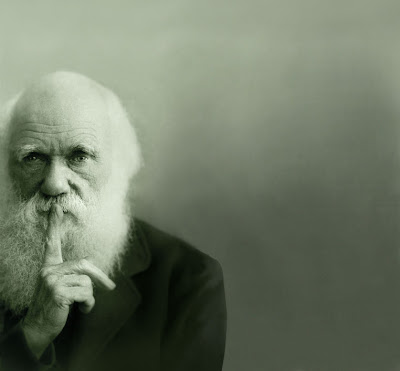Day 1: Evolution & Ethics - Darwin Was Here
January 18, 2010
Tags:
Ethics
Philosophy
Science
The past decade has seen an explosion of research in the biology of human nature as related to morality. Systematic studies in genetics, neuroscience, cultural anthropology and animal behavior are supplying more data than ever before about the role of emotions in our moral judgments, similarities between human and non-human primate social behavior, and the evolutionary roots of our sense of right and wrong. Spanning both the sciences and humanities, this emerging field of the biology of morality seems to fulfill what E.O. Wilson had in mind over 30 years ago when he called for "ethics to be temporarily removed from the hands of the philosophers and biologicized." Philosophers may still cling tightly, but they're having to share their grip of ethics with a growing number of scientists.
Given all the increased attention — from an assortment of disciplines ranging from molecular biology to law — the concept of "biologicized" ethics may seem new, but in many ways it reflects an earlier trend in human inquiry that goes back to the ancient Greeks. When Aristotle called man a "political animal", he was not simply speaking in metaphor. His comparison was rooted in his own studies of biological sciences, which included detailed observations of a variety of plants and animals (and apparently the first dissection of a chimpanzee). He also compared humans to the other social animals — ants, bees, wasps and cranes. The moral and political nature of humans in biological terms was not an unfamiliar notion to Aristotle, but it would be transformed and solidified by another intellectual heavyweight millennia later: Charles Darwin. In his work The Descent of Man, Darwin laid out the basics for almost all subsequent discussion of evolution and ethics, and he did it without any knowledge of genetics or neuroscience. In fact, it can be quite a challenge to find a new idea in the field today that does not have its roots in Darwin's writings over 150 years ago. Consider the following quotes:
"any animal whatever, endowed with well-marked social instincts, the parental and filial affections being here included, would inevitably acquire a moral sense or conscience, as soon as its intellectual powers had become as well, or nearly as well developed, as in man."
"The moral nature of man has reached its present standard, partly through the advancement of his reasoning powers and consequently of a just public opinion, but especially from his sympathies having been rendered more tender and widely diffused through the effects of habit, example, instruction, and reflection... nevertheless the first foundation or origin of the moral sense lies in the social instincts, including sympathy; and these instincts no doubt were primarily gained, as in the case of the lower animals, through natural selection."The continuity of morality from lower animals to humans, the additional element of reason, the emphasis on social instincts and emotions like sympathy; all of these insights are coming into the forefront right now. Of course, some of the terminology has changed and there is vastly more data to work with, but the discussion still echoes Darwin to a surprising degree. As we face a new decade, I can only speculate about the potential advances in science, how their implications will ripple out into other disciplines, and how they'll change our views of human nature and morality. But if the past is any indicator, they'll probably stem from something Darwin said.
